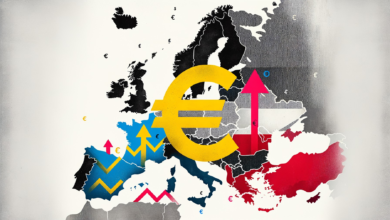Emerging Currencies Trim Losses As Traders Digest Rate Decisions

(Bloomberg) — A gauge of emerging markets currencies ended the day little changed in another quiet session for global markets, which was marked by interest rate decisions in Hungary and Nigeria.
Most Read from Bloomberg
The MSCI emerging-market currency index trimmed earlier losses to close flat, while a gauge of developing nation stocks rose 0.4%, holding gains even as US stocks flipped lower.
Investors in emerging markets are waiting for the start of the Federal Reserve’s easing cycle to see how the dollar and Treasury yields will fare. Analysts at Barclays expect higher-carry emerging markets to trade well for now, given expectations of lower US rates. But longer-term, a shallower US easing cycle will inevitably weigh on EM assets, they say, noting still-tight spreads to US rates.
“Monetary authorities will eventually have to weigh the trade-offs between a looser monetary policy stance and weaker exchange rates,” Barclays analyst Themistoklis Fiotakis said in a note to clients.
Latin American currencies were mixed, with the Mexican and Colombian pesos climbing while the Chilean peso and Brazilian real declined. Peru’s sol slipped on concern over the potential impact of pension withdrawals from privately-administered funds.
In Brazil, central bank minutes showed policymakers discussed the possibility of smaller interest rate cuts ahead, while annual inflation slowed less than expected in early March.
The Colombian peso was the best performing major currency in the world Tuesday as trading resumed after a long weekend following the central bank’s rate decision on Friday. The bank accelerated its easing cycle, but rejected calls from two policymakers for an even deeper cut.
It’s a shorter week for global markets, with trading suspended starting Thursday in countries including Colombia and Mexico for the Easter holiday. That could lead to lower liquidity and adjusting of positions, said Alejandro Cuadrado, chief FX strategist at BBVA in New York.
In Europe, the Hungarian forint gained after policymakers reduced the benchmark interest rate by 75 basis points to 8.25%. During a briefing, Deputy Governor Barnabas Virag said that the nation’s monetary policy is entering a “new phase” with rising risks that warrant a further slowing of its monetary-easing cycle.
Read More: Sri Lanka Renews Policy Easing With Cut in Benchmark Rates
Nigeria’s central bank, meanwhile, raised interest rates by more than expected as it steps up its battle to curb inflation and sustain a recovery in the nation’s battered currency. Sri Lanka also surprised economists, delivering a rate cut.
–With assistance from Colleen Goko.
Most Read from Bloomberg Businessweek
©2024 Bloomberg L.P.





